Emergency Dentist — Painesville, OH
Quick Relief & Repair for Smiles

You can’t fully plan for dental emergencies; they just tend to happen. That said, you need to act quickly when facing one – the situation will worsen otherwise. Luckily, there’s one thing you can do to get such crucial care: see your emergency dentist in Painesville! With our dental team at your side, your pain will ease and your oral health will recover. A visit with our office will thus save you the time, money, and hassle of an ER visit. To learn more, just keep reading or contact us today.
Why Choose Us for Emergency Dental Care?
- Same-Day Emergency Appointments
- Availability for Evenings & Weekends
- A Friendly and Well-Trained Dental Team
How We Treat Dental Emergencies
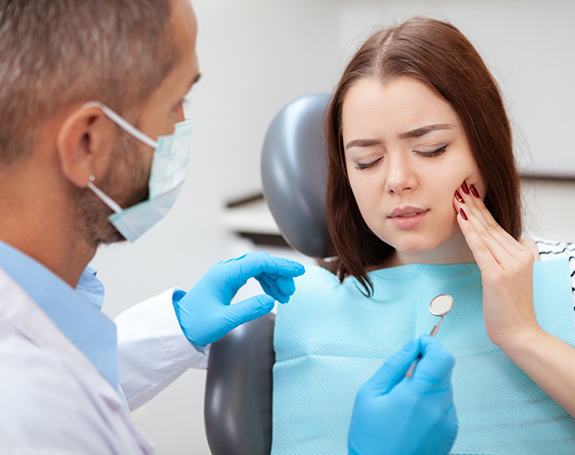
Even if you’ve never gotten urgent oral care before, you don’t need to panic. Our office is happy to give you a rundown of how it works. So, here are four things to expect from your emergency dental visit:
- A Same-Day Appointment – Once you’ve contacted us, we’ll book you for the earliest available time we have. (You may even see us the same day you call!) Plus, we can provide first-aid tips over the phone.
- An Emergency Exam – Right when you arrive for the visit, our team will perform a quick emergency exam. This step lets us learn the source and extent of your problem. (In the short-term, the exam will also reduce your immediate pain.)
- A Review of Findings – After the oral exam, our dentists will show you their preliminary findings. They’ll then suggest some possible procedures. Next, our practice will draft a custom treatment plan based on your preferences. (While outlining the plan, we’ll explain your procedure’s estimated price and timeframe.)
- Top-Quality Dental Care – Our team will quickly fix your dental issue once the treatment plan is drafted. After all, you can count on us for fillings, root canal therapy, or anything else you need. The ultimate result will be a healthy smile and gums!
The Most Common Dental Emergencies
Dental emergencies may have their differences, but some are more common than others. You should thus visit us immediately if you suffer one. As it happens, our team is well-equipped to treat a wide range of common dental emergencies. Therefore, don’t hesitate to call us if you experience any of the following.
Understanding the Cost of Dental Emergencies

Depending on what type of dental emergency you are experiencing, your treatment could vary. For example, those who have tooth pain may only need a dental filling, while others could need root canal therapy and a crown to address an infection. It all comes down to your unique situation. Of course, that doesn’t mean you should skip treatment you need to address a dental emergency. We’ll work with your directly to build a treatment plan that fits into your budget.
Keys to Preventing Dental Emergencies
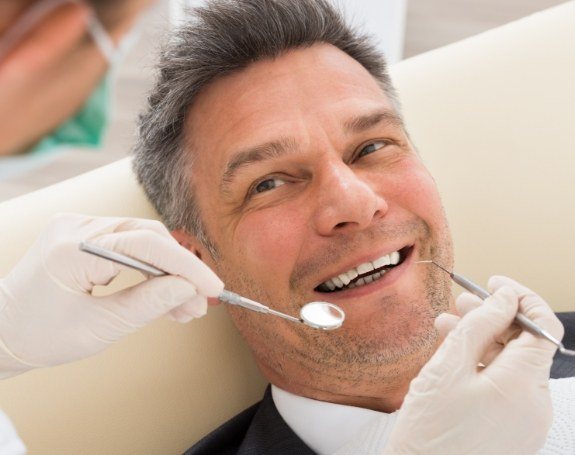
Although our Painesville emergency dentist is always here to restore decayed, cracked, and otherwise damaged teeth, they also want to help prevent that from happening in the first place. While not all dental emergencies can be avoided, there are steps you can take to dramatically reduce your risk of experiencing one going forward. For example, you should:
Visit Your Dentist Twice a Year

Remember, your biannual visits to our office play an essential role in treating decay and eliminating infections before same-day emergency care is required. So, if it’s been longer than six months since your last checkup and cleaning, now’s the time to schedule your next one! That way, we can conduct a thorough oral exam as well as a meticulous cleaning, screening for oral cancer and removing built-up plaque in the process.
Maintain a Good Oral Hygiene Regimen At Home

Of course, taking care of your smile on a daily basis is crucial as well. In addition to brushing and flossing consistently, we recommend cleaning your tongue and rinsing with an antimicrobial mouthwash daily. Furthermore, you should replace your toothbrush every three to four months and be mindful of timing. After all, quickly wetting the bristles of your toothbrush and scrubbing your teeth for 30 seconds won’t do the trick!
Stick to a Nutritious Diet

There are a few things you shouldn’t eat (or at least limit) for the sake of your oral health, like sugary foods and drinks. After all, sugar is one of the leading causes of tooth decay, which leaves your teeth considerably more vulnerable to cracks and fractures. Instead, try to focus on adding nutrient-dense foods to your diet, like whole apples, raw celery, sweet potatoes, and plain yogurt. These will give your body the nutrients it needs to keep your smile in tip-top shape!
Wear a Mouthguard During Sports

If you participate in any sports (even solo ones, like skateboarding), you need to wear a mouthguard. This dental device may be small, but it’s one of the most effective ways to prevent a knocked-out tooth, soft tissue injury, and the like while being active.
Note: We also recommend wearing a nightguard if you chronically clench or grind your teeth. Sometimes, this habit goes unnoticed for years because it only happens at night, which is another reason why it’s so important to visit us every six months for an exam.
Use Tools to Open Packages, Not Your Teeth
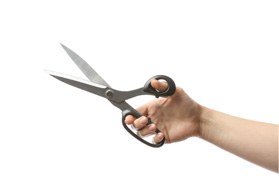
Whether you’re trying to take off a bottle cap, open a package, or remove a clothing tag, you shouldn’t use your teeth. Although they are sharp, they can quickly break under the pressure. Plus, you introduce your mouth to countless bacteria in the process, which can enter your digestive tract within a matter of seconds. That’s why it’s always best to use the right tools instead.
Root Canals
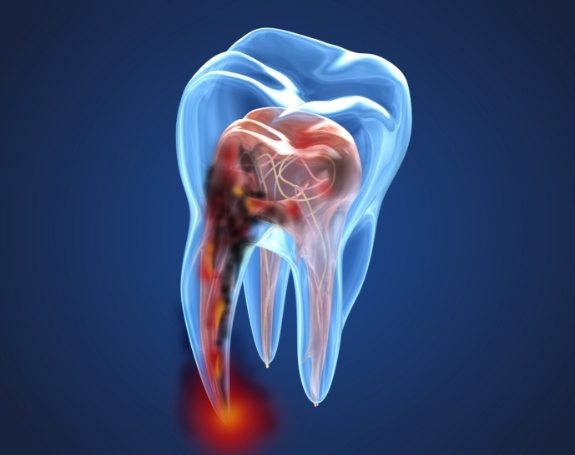
A root canal, despite its extremely bad reputation, is a very useful procedure that allows our team to relieve the most severe dental pain and save teeth that would otherwise need to be removed. We use them when the innermost portion of a tooth, called the dental pulp, has become infected, which can lead to the mother of all toothaches. With a root canal, we can easily eliminate this pain while keeping you completely comfortable during the entire procedure.
Tooth Extractions
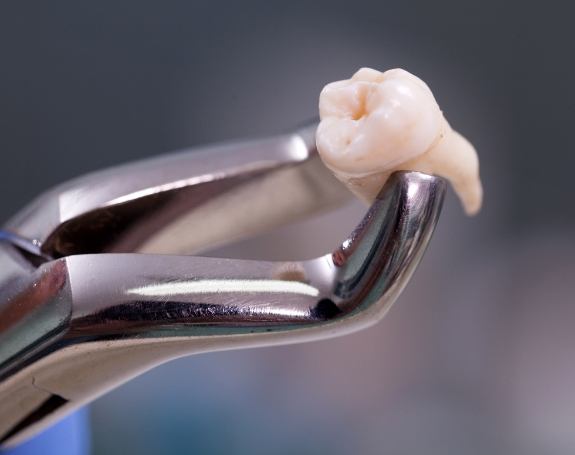
In general, we do what we can to preserve natural teeth as long as possible. However, there are times when a tooth must be removed. We usually perform this sort of “extraction” if:
- A tooth is too damaged to be restored
- Gum disease has deteriorated the bone supporting a tooth
- A baby tooth refuses to fall out naturally/is blocking an erupting adult tooth
- Room needs to be created for a denture/orthodontic treatment
Preventive Dentistry Restorative Dentistry Dental Implants Cosmetic Dentistry Periodontal Therapy TMJ/TMD Therapy View Our Services
